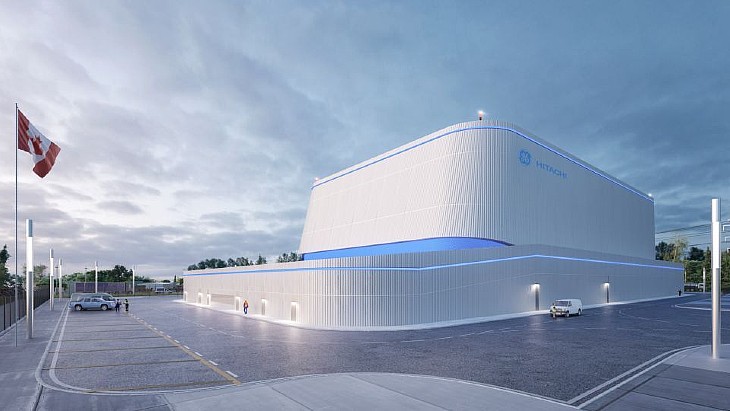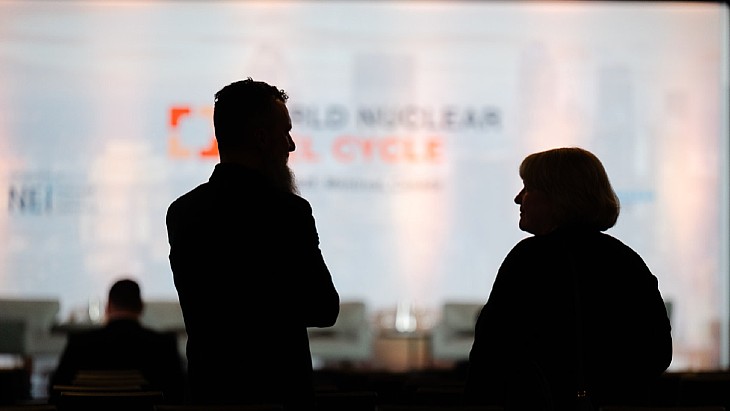Fukushima water release will have minimal impact, Tepco says
.jpg)
At the Fukushima Daiichi site, contaminated water is treated by the Advanced Liquid Processing System (ALPS), which removes most of the radioactive contamination, with the exception of tritium. This treated water is currently stored in tanks on site. The total tank storage capacity amounts to about 1.37 million cubic metres and all the tanks are expected to be full around mid-2022.
In April, the Japanese government announced its formal decision that the treated water stored at the Fukushima Daiichi site will be discharged into the sea. Japan intends to start releasing the treated water around the Spring of 2023, and the entire operation could last for decades. In August, Tepco announced plans for the construction of an undersea tunnel, about 1 kilometre in length, for the discharge of the treated water.
Tepco said it developed a methodology to assess the radiological impact of the water release. This, it said, was based on the information available at the current design stage of the implementation plan for the discharge, and in accordance with the standards and guidelines established by internationally recognised organisations, such as the International Atomic Energy Agency (IAEA) and the International Commission on Radiological Protection (ICRP).
It said the assessment assumes that the ALPS-treated water from the three particular tank groups from which actual measurements for 64 radionuclides have been gathered is diluted by seawater and then continuously discharged during the discharge period. The ALPS-treated water will be diluted by seawater by 100 times or more so that the tritium concentration at the discharge outlet will be less than 1500 becquerels per litre (Bq/L). "Through this process, the 'sum of the ratios' of 62 radionuclides and carbon-14, other than tritium, will be also diluted to less than 1/100," Tepco said.
"While some areas directly above the tunnel exit, before dispersion, show concentrations exceeding 30 Bq/L, the concentration swiftly falls in the surrounding area," Tepco said. "Furthermore, the 30 Bq/L measurement observed in the area directly above the tunnel exit is still significantly below the national regulatory standard (60,000 Bq/L) and World Health Organisation guidelines for drinking-water quality (10,000 Bq/L)."
Minimal impact
"The assessment found that effects of the discharge of ALPS treated water into the sea on the public and the environment is minimal as calculated doses were significantly less than the dose limits, dose targets, and the values specified by international organisations for each species," Tepco said.
The company noted that as a result of calculations with multiple source terms and multiple food ingests, the annual human exposure doses ranged from 1.7E-05 millisieverts (mSv) per year to 2.1E-03 mSv/year, which is significantly lower than the ICRP recommendation of 1mSv/year for the general public, as well as the domestic nuclear power plant dose target of 0.05 mSv/year in Japan.
"Tepco will widely receive and gather public comments to further improve the report," the company said. "Going forward, we will implement necessary procedures to receive approval for the implementation plan from the Nuclear Regulation Authority, and revise the assessment following reviews by IAEA experts and upon receiving opinions and reviews from various other parties.
The company plans to start discharges with small amounts of water while assessing and confirming the impact on the surrounding environment. It said if the dilution equipment fails to perform its functions due to breakdown or loss of power, or if an abnormal value is detected by monitoring, it will immediately stop discharging ALPS-treated water and only resume when it has confirmed that the water can be discharged safely.
"Tepco will continue to disseminate, in a transparent manner, scientific information regarding the radiological impact on the public and the marine environment to foster understanding and expel concerns for people at home and abroad."
The IAEA has agreed to provide technical support in monitoring and reviewing Japan's safe and transparent implementation of its plan to discharge the treated water to sea.










_50521.jpg)

